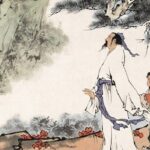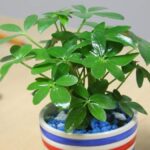The following are the three plants considered the ‘favorites’ of the God of Wealth:
1. Hydrangea aspera
This hydrangea species exudes elegance and nobility. It can be nurtured for decades, maintaining its vibrant appearance. The small, spherical blooms are truly stunning and symbolic of wealth. While its growth may be relatively slow, the flowers it bears are large and luxurious.
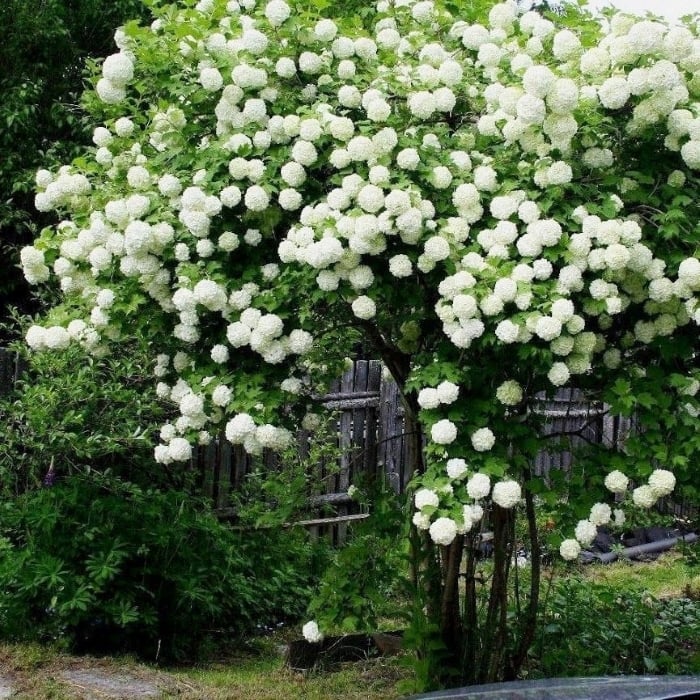
The Hydrangea Aspera boasts pristine white flowers that exude sophistication and symbolize affluence.
Hydrangea Aspera is remarkably easy to bloom and is highly tolerant of both cold and warm temperatures. It only requires some complex fertilizers during its growth period to promote the development of new shoots.
Additionally, it is advisable to prune the remaining flowers once they have finished blooming. This encourages the growth of new buds, and you can expect an even more abundant display of flowers the next time around.
2. Sweet Osmanthus
Sweet Osmanthus, also known as Osmanthus Fragrans, is native to Asia and is prevalent in the Himalayan mountain range and countries like China and Taiwan. It is now widely cultivated in Vietnam.
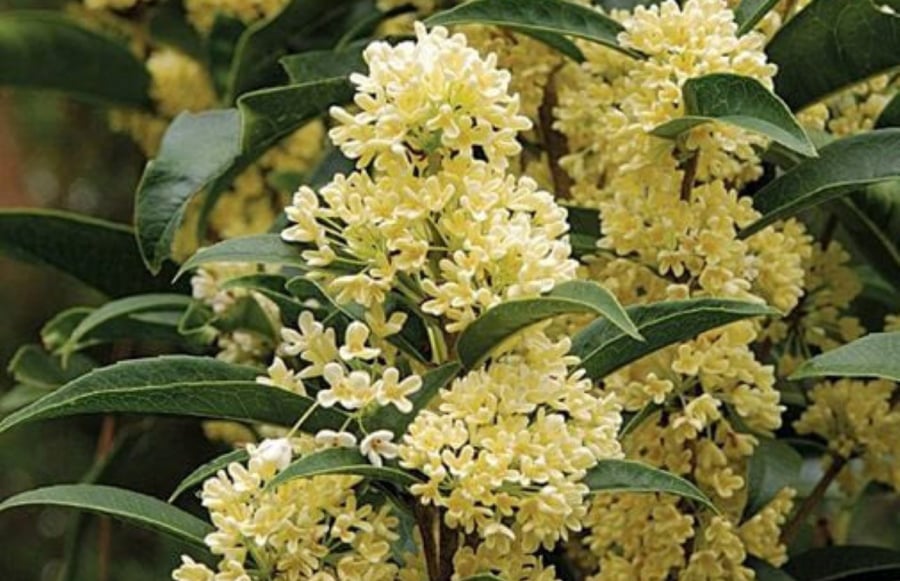
Sweet Osmanthus bears fragrant flowers that bloom all year round, attracting wealth and good fortune for the homeowner.
This plant holds significant value in both feng shui and traditional medicine, which contributes to its high market price, especially for aged specimens that can cost up to billions of dong.
Adorning your home with Sweet Osmanthus is believed to attract good luck and financial prosperity for homeowners of all elements in the five elements theory.
Sweet Osmanthus delights the senses with its fragrant blooms, which appear in abundance, particularly during autumn. The flowers come in various colors, including white and a delicate shade of yellow.
This plant is easy to cultivate and isn’t picky about soil type. It can be propagated through seeds or cuttings, with the latter being the preferred method for many as it expedites the growing process.
3. Podocarpus macrophyllus
Podocarpus macrophyllus, also known as Buddhist pine, is a long-lived, woody plant with a lifespan of several hundred years. Its leaves remain a lush green throughout the year, and its shape is characterized by long, symmetrical foliage.
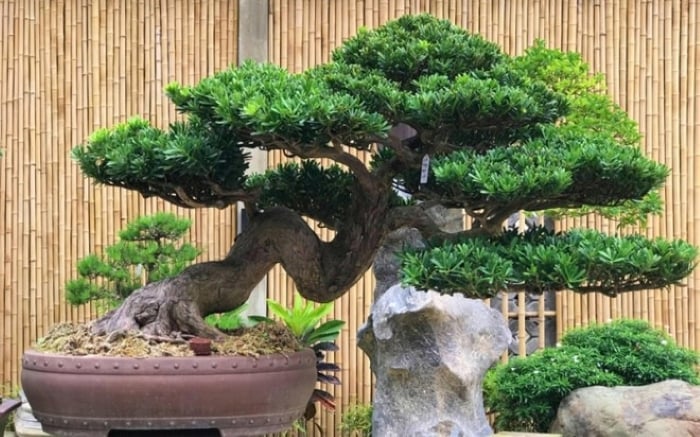
Podocarpus macrophyllus is believed to bring prosperity and success to its owner.
In feng shui, this plant is associated with numerous positive meanings, making it a popular choice for ornamental purposes in various locations to attract good fortune.
The Podocarpus macrophyllus is thought to bring affluence and success to its owner. Its resilient nature, evident in its ability to withstand harsh weather conditions, is a symbol of enduring growth and a harbinger of thriving life.
There are several techniques for cultivating this plant, but the two primary methods employed today are bonsai cultivation and pot cultivation for landscaping projects.
Typically, this species is propagated through branch cutting. Once the new branches have developed, and the plant reaches a height of approximately 80cm, it is time to either repot it or transfer it to a new location in the ground.
The information provided in this article is for reference only and should not be solely relied upon.
The 5 Alarming Signs Your Home Has Poor Feng Shui, Impacting Your Wellbeing and Prosperity
The practice of residential feng shui is not merely a spiritual affair; it involves the intricate art of spatial arrangement and the delicate balance of energy flows within a home. If your abode exhibits any of the following ill-omened signs, heed this warning and take prompt action to avert potential hazards.
The Ancient Warning: “Be Wary of the High-Boned Bride and the Bushy-Eyed Betrothed”
“Never marry a woman with high cheekbones, and don’t marry a man with thick eyebrows.” This age-old saying is a fascinating glimpse into the past, offering a cryptic warning to those seeking a lifelong partner. The true meaning of this proverb remains shrouded in mystery, with only a select few able to decipher its subtle message.

























